Transition Leadership Stories
Original voices, thoughts, approaches and accomplishments from leaders in transition.
Profiling diverse perspectives on the transition to a low carbon, socially equitable economy from business, academia, government and the non-profit community.
Since my recent move from corporate sustainability to academia, I’ve been looking for opportunities to see how sustainability transitions are being talked about in research circles.
That’s how I found myself among 400 international participants, exploring the theme “accelerating sustainability transitions: Building visions, unlocking pathways, navigating conflicts” at the 10th International Sustainability Transitions (IST) Conference.
Alternatively hopeful and challenging, I walked away with some key insights and questions that have inspired ongoing conversation at the Academy for Sustainable Innovation, where we are crafting impactful interventions at strategic points along the career lifecycle to develop essential transition leadership skills.
Reality Check: Limits are Real
Programming kicked off with 2018 IPCC Special Report contributor Heleen de Coninck, who emphasized the clear benefits to limiting global warming to 1.5 degrees vs 2 degrees above pre-industrial levels.
The catch, of course, is that “unprecedented change is required” across all systems: energy, urban, infrastructure, industrial and ecosystems as well as atmospheric CO2 removal.
De Coninck outlined how change will depend on creating conditions for things like:
- redirecting finance and investment from fossil based to low emission technologies
- creating policies that de-risk sustainability investment
- building institutional capacity globally (eg. governments, companies, communities and banks)
- improving governance and the ability to cooperate across actors/sectors
- enabling public support and behaviour change
- supporting technological innovation
She closed her presentation with this additional challenge: “…besides what we do, how we do it matters.”
Transition Storytelling & Engagement
Several subsequent sessions focused on the “how,” highlighting blind spots in transition scholarship, and called for more understanding of agency and power. Speakers like Jennie Stephens from Northeastern University shared her work on feminism and renewable energy and strategies for resisting systemic oppression of marginalized voices in sustainability transitions.
Transition scholar Karoline Augenstein, from the Center for Transformation Research and Sustainability at the University of Wuppertal discussed how narrative analysis can help engage collective action for institutional change. As symbolic presentations of a sequence of events, narratives help humans make sense of their perceptions and experience through stories. The term, “emplotment” captures how personal identity and integrity become part of the narrative process and enables collective action and resistance to obstacles. Better understanding of emplotment and how people see themselves as part of the story – or not – can shed important insight on transition blind spots.
What do we mean by acceleration?
Frank Geels, known for his work on multi-level perspective (MLP) on transitions, reminded us that accelerating transition requires asking broader questions about systems orientation and interdisciplinarity.
Most often ‘acceleration’ refers to the pace of transition and the rapid diffusion of energy alternatives like solar and wind. But, Geels pointed out that different, systemic questions need to be addressed. How do we manage the decline of incumbent technologies? How do we navigate the breakdown of established system structures, subsequent systems reconfiguration and decentralization, knowing the resulting struggles will be existential for some incumbents?
Geels emphasised the need to manage the old, not just stimulate the new, when we talk about acceleration. He reiterated calls for fundamental changes in business, consumption, governance and moving beyond the focus on single innovations. He pointed out that there is no evidence yet that this level of deep, systemic change is underway.
No such thing as ‘business as usual’
Plenary speaker, John Robinson from the University of Toronto also urged participants to think beyond acceleration and focus on steering transition. He reminded us that change is inevitable, and there is no such thing as ‘business as usual’. Rather than focus on singular policies, he suggests we need to make sure we’re on the right pathways.
It was inspiring to learn about emerging areas of study and practice that focus on steering transition. Fields like Transition Design draw from other disciplines to better understand how to design for complex system change.
Questions for academia…
Oft-quoted throughout the event was Geels’ comment that “most scholars would prefer to use someone else’s toothbrush than someone else’s framework.” The reality behind the humour raises questions about managing siloed academic tendencies and building capacity for transdisciplinarity and collaborative scholarship.
So how can academia best contribute to sustainability transition challenges? What are the capacities needed in academic institutions to support the next generation of transition scholars? What does pedagogy for sustainability transitions look like?
More broadly, what are the key institutional capacities needed globally across institutions? What are the leadership models and competencies needed for steering transition and enabling deep system reorientation vs a shallow focus on single innovations?
Last reflections and next steps
Overall, I was reminded about the value our focus at the Academy for Sustainable Innovation brings to activate solutions to these kinds of questions. The need to build capacity for steering and accelerating sustainability transitions is precisely what ASI addresses through Transitions Masterclass training for graduate level students, and the Breakthrough Leadership for Transition for mid- and senior-level executives.
By joining the growing community of transition scholars at the IST conference, I gained a deeper sense of meaning and impact for ASI’s programs and my own role in advancing scholarship, accelerating, reorienting and steering sustainability transitions during the years to come.

Nadine Gudz
VP, Executive & Professional Development


